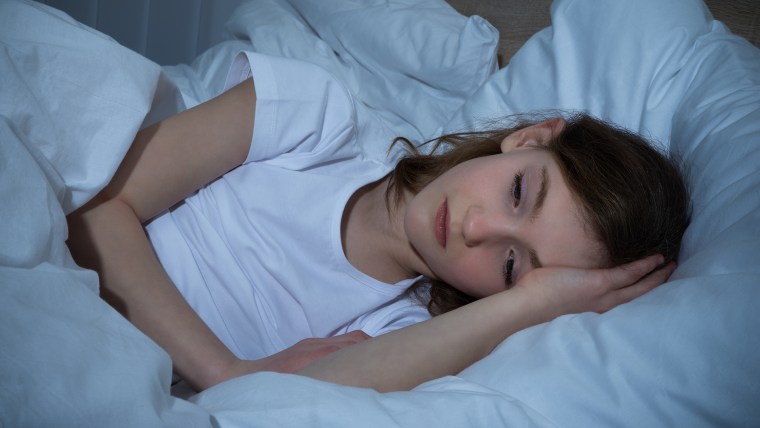Could lack of sleep be an underlying cause of ADHD? Maybe, a new study suggests.
Researchers have found that many people with ADHD, or attention deficit/hyperactivity disorder, have problems with their biological clocks, causing them to fall asleep later and get less sleep overall.

The evidence lies in levels of melatonin, a hormone that sparks our urge to sleep. In people with ADHD, melatonin levels rise later in the evening than they do in people who do not have the disorder, according to a report presented at the European College of Neuropsychopharmacology Conference in Paris.
Most people with ADHD tend to fall asleep later than people without the disorder, which leads to less sleep time overall, said the study’s lead author, Dr. Sandra Kooij, an associate professor of psychiatry at VU Medical Center in Amsterdam. That sleep loss, Kooij said, "seemed to increase the severity of ADHD symptoms."
An estimated 11 percent of children between 4 and 17 have been diagnosed with ADHD, according to a report by the Centers for Disease Control and Prevention. And, as of 2011, approximately 6.1 percent of children were being treated with an ADHD medication, according to the CDC.
If Kooij is right, it’s possible that-non drug treatments — like light therapy, for example — might at least mitigate symptoms in some people diagnosed with ADHD.
That theory is not farfetched, experts say. Researchers have seen evidence in other brain diseases, such as bipolar disorder, that straightening out the biological clock can improve symptoms, said Brant Hasler, a circadian rhythm expert who has looked at the impact of sleep on a variety of psychiatric disorders, including ADHD. Hasler is unaffiliated with the new research.
In fact, Hasler said, several small studies have suggested that light therapy not only corrects the biological clock but also diminishes ADHD symptoms.
For the new report, Kooij collected saliva samples from 52 adults with ADHD and 52 who did not have the disorder. She found the rise in melatonin was delayed by an hour and a half in those with ADHD.
The connection between ADHD and the biological clock may be through the neurotransmitter dopamine, which tends to be in short supply in people suffering from the disorder.
“The stimulant medication that is effective in ADHD increases dopamine levels in the brain,” Kooji said.
Dopamine is considered a day hormone in our bodies; melatonin is the opposite, activating at night, inducing sleep.
"So here we are getting closer to understanding how daytime dopamine, which is low in ADHD, and delayed melatonin function at night may be two sides of the same coin.”
While it may help overall to get more sleep, “the timing of when you sleep also matters,” said Chris Colwell, a professor of psychiatry and behavioral sciences and director of the Laboratory of Circadian and Sleep Medicine.
Resetting your body clock
The good news is changing habits can often help you get your biological clock reset in order to get better rest, and perhaps to improve ADHD symptoms, Colwell said. He suggests the following:
- Dimming the lights earlier in the evening.
- Exercising earlier in the day.
- Eating a small meal for dinner.
- Forgoing the use of electronic devices as you're winding down.